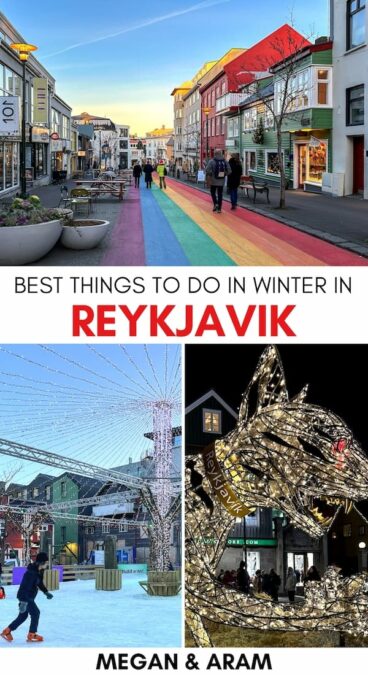One great thing about Iceland is that there is no bad time to visit! This is a guide to the best things to do in Reykjavik in winter!
While most travelers know to expect the northern lights in Iceland during the winter months, they may draw a blank on other things to do. I have been three times during the dark months, so I hope my experience helps!
If youʻre booking your trip to Iceland last minute, we have you covered. Below are some of the top tours, hotels, and more!
🇮🇸 Popular tours/activities in Reykjavik (and nearby):
- Top-rated northern lights tour from Reykjavik (top-selling tour!)
- Golden Circle day trip from Reykjavik (best day trip option)
- Jökulsárlón Glacier Lagoon Full-Day Trip (includes dinner in Vik)
🛌 Top places to stay in Reykjavik:
- Reykjavik EDITION (5-star luxury hotel at the Old Harbor)
- Hotel VON (mid-range boutique hotel with epic location)
- Kex Hostel (famous budget accommodation in city—near water!)
✈️ Want to get from the Keflavik airport to Reykjavik hassle-free? Find the best airport transfer option here!
This guide will help you discover several winter activities in Reykjavik, from glacier hiking (okay, so that is a day trip!) to exploring some of the city’s best museums!
It will also detail some of the best winter events, festivities, and more!
Did I miss anything cool to do during the winter in Reykjavik? Let me know your top picks in the comments.
In this post...
When is winter in Reykjavik?
In reality, some people say that Iceland has two seasons: mild winter and winter. However, the cold winter season usually lasts from November to March.
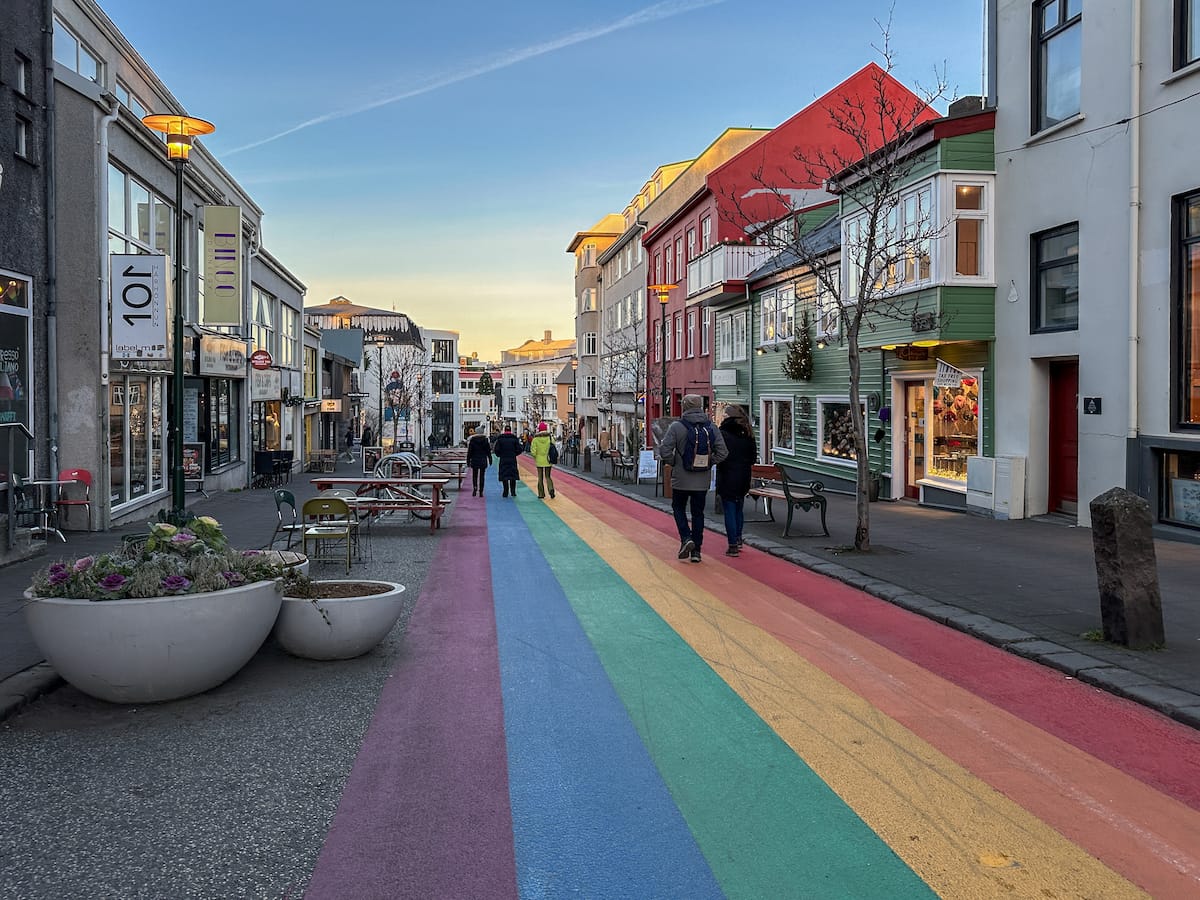
You may also experience frigid temperatures in October and April, depending on the year.
Reykjavik Winter Daylight Hours
Since Iceland is just south of the Arctic Circle (with a small part actually in the Arctic Circle), it is one of the countries that experiences a dark winter.
At most, there might be five hours of daylight in one day during December. On the shortest day of the year, the sun rises at around 11 AM and sets at around 4 PM or so.
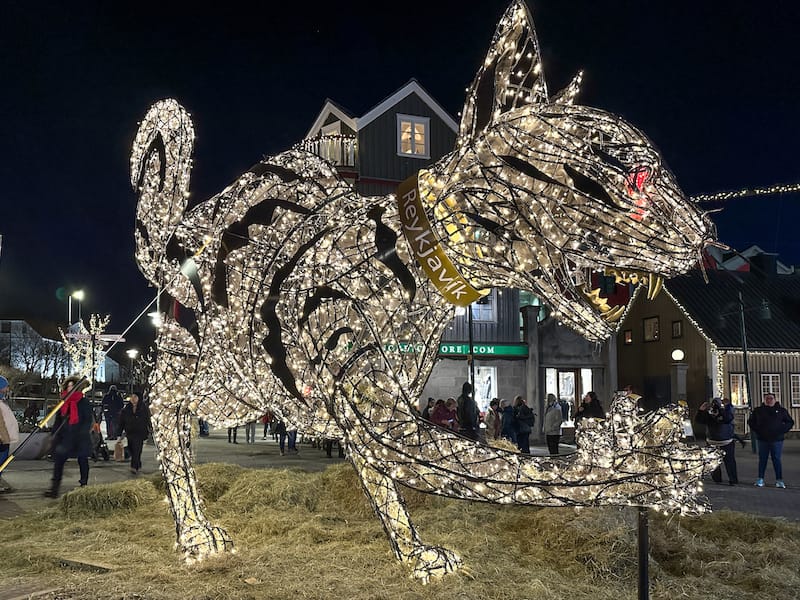
However, don’t let the darkness deter you—there’s still so much to do in Reykjavik after dark!
Reykjavik Winter Temperatures
In the winter, the average temperature tends to be around 1-2 C (33-35 F). Temperatures can go as low as -10 C (14 F).
The coldest month of the year is usually January. You can see the average winter temperatures below:
- Reykjavik in November: highs of 4°C (39°F), lows of -1°C (31°F); 12 days of precipitation
- Reykjavik in December: highs of 3°C (37°F), lows of -2°C (28°F); 14 days of precipitation
- Reykjavik in January: highs of 3°C (37°F), lows of -3°C (27°F); 13 days of precipitation
- Reykjavik in February: highs of 3°C (38°F), lows of -2°C (28°F); 13 days of precipitation
- Reykjavik in March: highs of 4°C (39°F), lows of -2°C (29°F); 14 days of precipitation
Does it snow in Reykjavik?
Yes! Reykjavik does see a fair amount of snow throughout the year, and it’s possible to experience snowfall between October and May in Reykjavik.
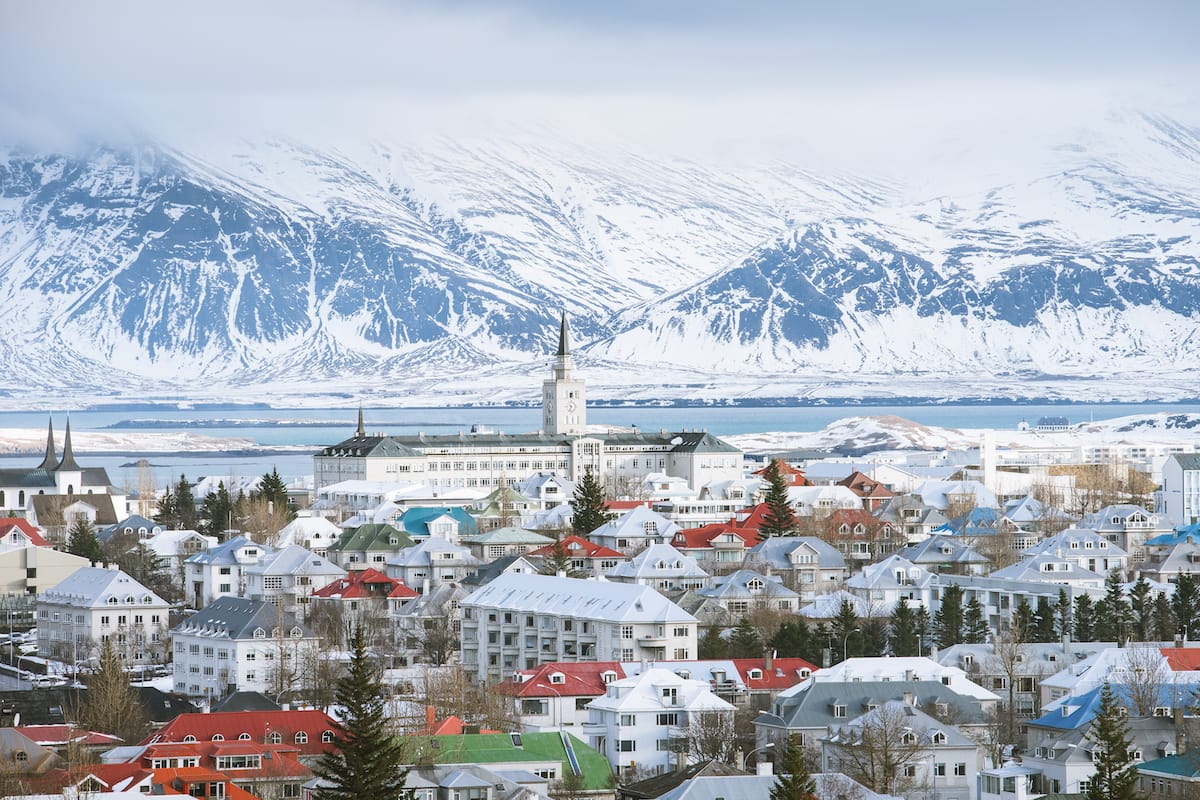
Throughout the winter season, the average is around 309 mm (12.17 inches) of snow. Interestingly enough, I have rarely seen snow in Reykjavik despite traveling there three times during the winter months!
Can you see the northern lights in Reykjavik?
Reykjavik is the only capital city in the world outside of Nuuk, Greenland where it’s possible to witness the northern lights regularly.
The best time of the year to have the highest chances of seeing this magical phenomenon is between late September and late March.
Tons of tours allow you to see the northern lights, and within Reykjavik, Öskjuhlíð Hill is known for offering some of the best views!

Best Things to Do in Reykjavik in Winter
1. Go on a Northern Lights Tour from Reykjavik
The best times to see the northern lights are from September to April, as noted above. Iceland is very dark during the winter, which is ideal for catching the brilliance of the aurora!
If you stay in a darker place with minimal light pollution, it is possible to catch sight of the aurora borealis from your hotel window in Reykjavik.
Otherwise, you can travel north to Seltjarnarnes, a peninsula that is attached to the Grótta Island Lighthouse.
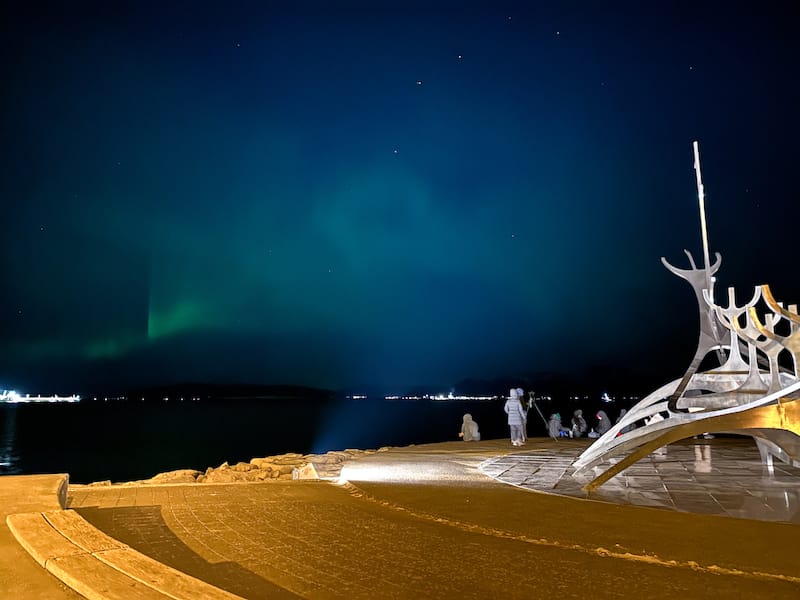
Both are about four and a half to five kilometers north of Reykjavik (about 3 miles or so) and have signature Icelandic baths you can relax in until the lights appear, including Kvika Foot Bath, which is open 24 hours a day.
About 4km (2.5 miles) south is Oskjuhlid Hill, a forested hill cloaked in darkness that is often referred to as one of the top places to see the lights around the city.
Additional suggestions by locals include Laugardalur Park, Klambratun, and Hljomskalagardur.
If you do not have a rental car on your trip to Reykjavik, you can also take one of the many northern lights tours available.
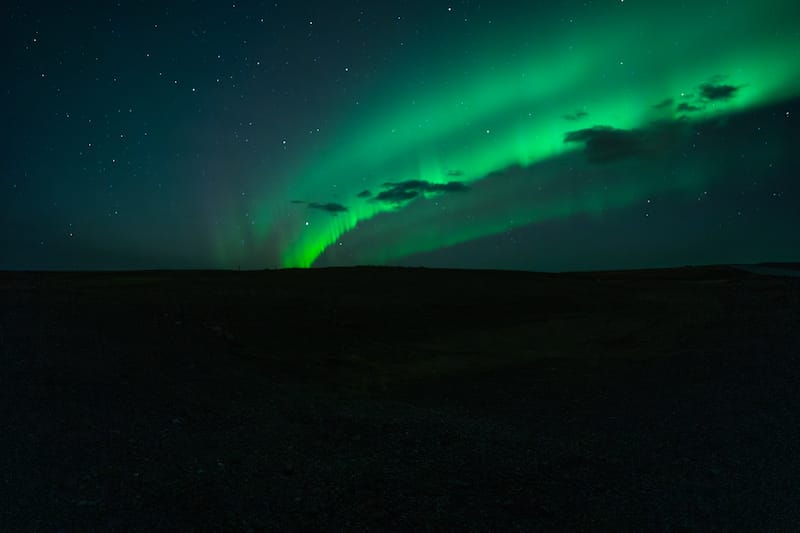
This will provide you with an expert guide who will take you out looking for them and away from the light pollution of the city!
>> Click here to check northern lights tour rates and availability
2. Warm-up at One of the Best Cafes in Reykjavik
There is nothing I love more than a Nordic cafe in the winter. Reykjavik has its fair share of good coffee, and I have visited so many cafes there throughout the years.
Here are some of my favorites that are worth visiting during the winter months:
Kaffi O-le (Hafnastraeti 11): this cafe is inside (or maybe beside?) the Radisson Blu 1919 Hotel and has one of the best coffees in Reykjavik! I ordered a flat white there, and it was made to perfection. Beware – it is only open until 3pm.
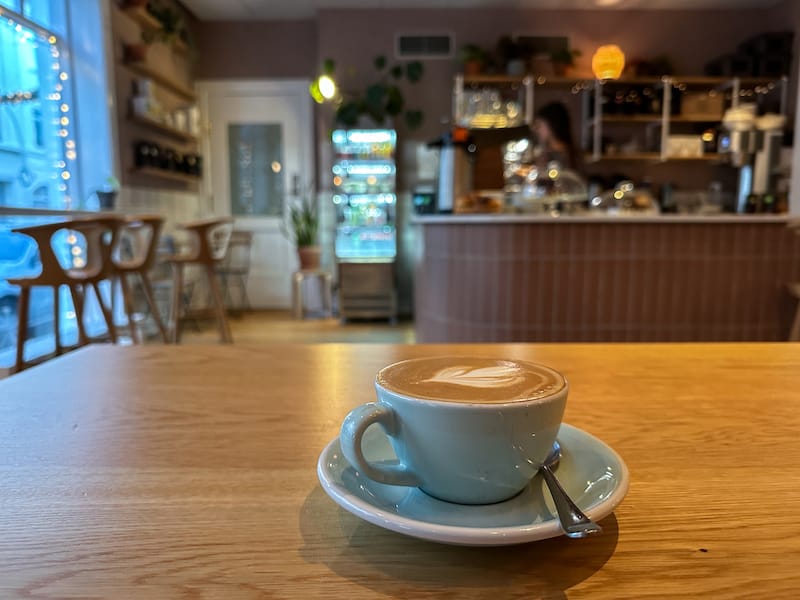
Reykjavik Rost (Geirsgata 5): while the place serves Lavazza beans and is not a local microbrewery, I still love this cafe for its views and cozy vibe. It sits right by the harbor and is a great place to grab a coffee before a boat tour if you have one planned. They close at 6pm.
Reykjavik Roasters (Karastigur 1): this cafe is the perfect place to stop on the way to Hallgrimskirkja and is another cozy find delivering some of the best coffee in the city. They have a couple of other locations, but this one is open until 5pm.
3. Visit the Blue Lagoon
One of the best places to put on your Iceland winter itinerary is the Blue Lagoon and its geothermal spa (and hotels). It is a must if you’re taking your first trip to Iceland!
The world-renowned hot springs attract visitors throughout the year. These healing waters are a mixture of 70% ocean water and 30% freshwater, thus creating geothermal seawater.
The silica from the lava of the volcanic earth’s natural wells reflects sunlight in the emerging water, creates the water’s iconic blue color, and is at a constant, tranquil 38C (100F).
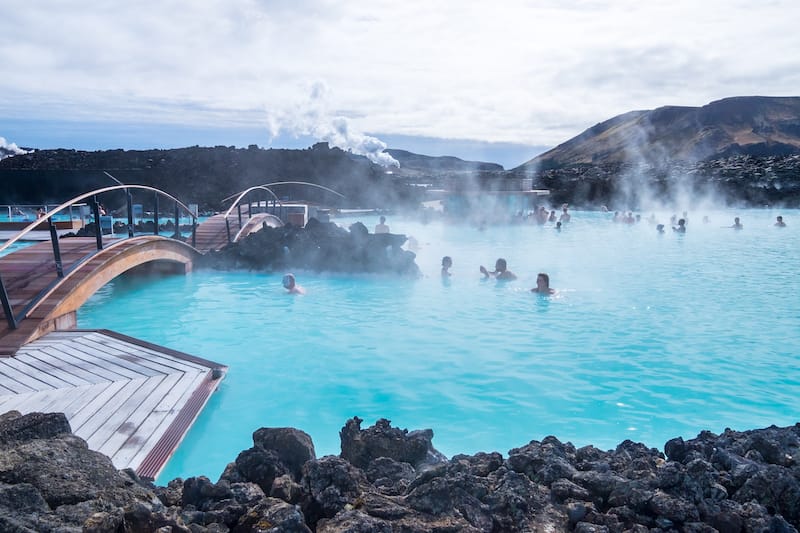
The two hotels of the lagoon are Silica Hotel and Retreat Hotel, which offer many amenities, from unlimited access to the lagoon to massages, facials, and cosmetics using the lagoon’s refreshing elements, float therapy, suites with their own private and hidden spa, and a Michelin-starred fine dining experience.
Click here to check out day trip options to the Blue Lagoon that are organized from Reykjavik.
Address: Norðurljósavegur 9, 240 Grindavík
4. Celebrate Þorrablót, an Icelandic Midwinter Festival
Celebrate a revived pre-Christian midwinter festival called Þorrablót (Thorrablot) when visiting Reykjavik in winter!
Thorri is the month in which it takes place, on the 13th week of winter, which is usually the first Friday after January 19th, and “blot” means sacrifice in Icelandic, thus the name suggests its intentions!
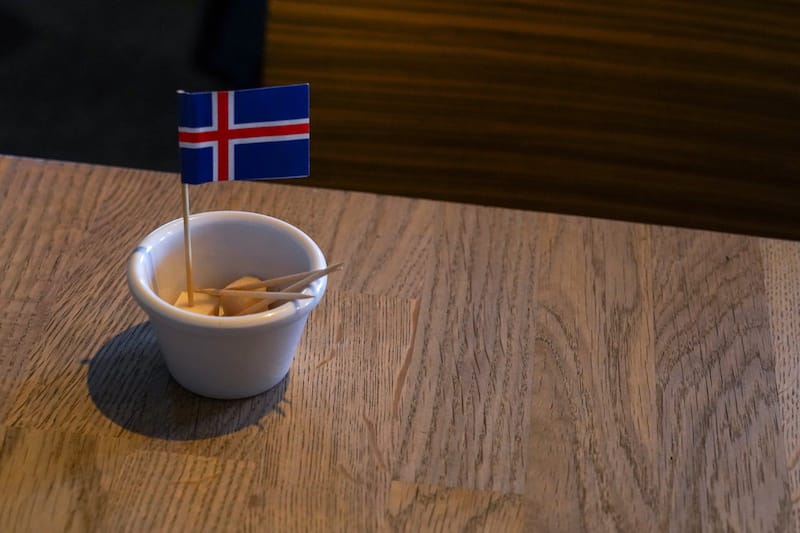
Thorrablot is a sacrificial festival in honor of the pagan gods; however, today it is another occasion to gather together. Before and during dinner, traditional songs are sung, speeches, poems, and stories are recited, and games are played.
In addition, there are stage performances and traditional dancing after supper until the break of dawn.
While the delicacies on display are a bit unconventional to describe, they are part of the traditional Icelandic cuisine and must be loved for a reason: svið– boiled sheep’s head; hákarl– fermented shark; Brennivin– a schnapps distilled from caraway and potatoes; and blóðmör– solidified sheep’s blood wrapped in a ram’s stomach.
Icelandair has written a good piece describing it a bit more in detail, so I recommend checking it out for more if you’re looking for a great time in winter!
5. Go on a Glacier Hike at Skaftafell National Park (+ Ice Caving!)
Book a trip to hike across a glacier at Skaftafell National Park! The Vatnajökull glacier is Europe’s largest, and the duration of the hike itself takes up to an hour and a half.
Located on the south coast of Iceland, it is one of my favorite day trips from Reykjavik in winter!
Deep fissures, crevasses, and even vertical shafts are present on the surface of the impacted ice as a result of the melting water dispersing into them.
As you hike towards the small ice tunnels, you’ll be overwhelmed by the glory of the mountains’ peaks, covered in ice in the distance.
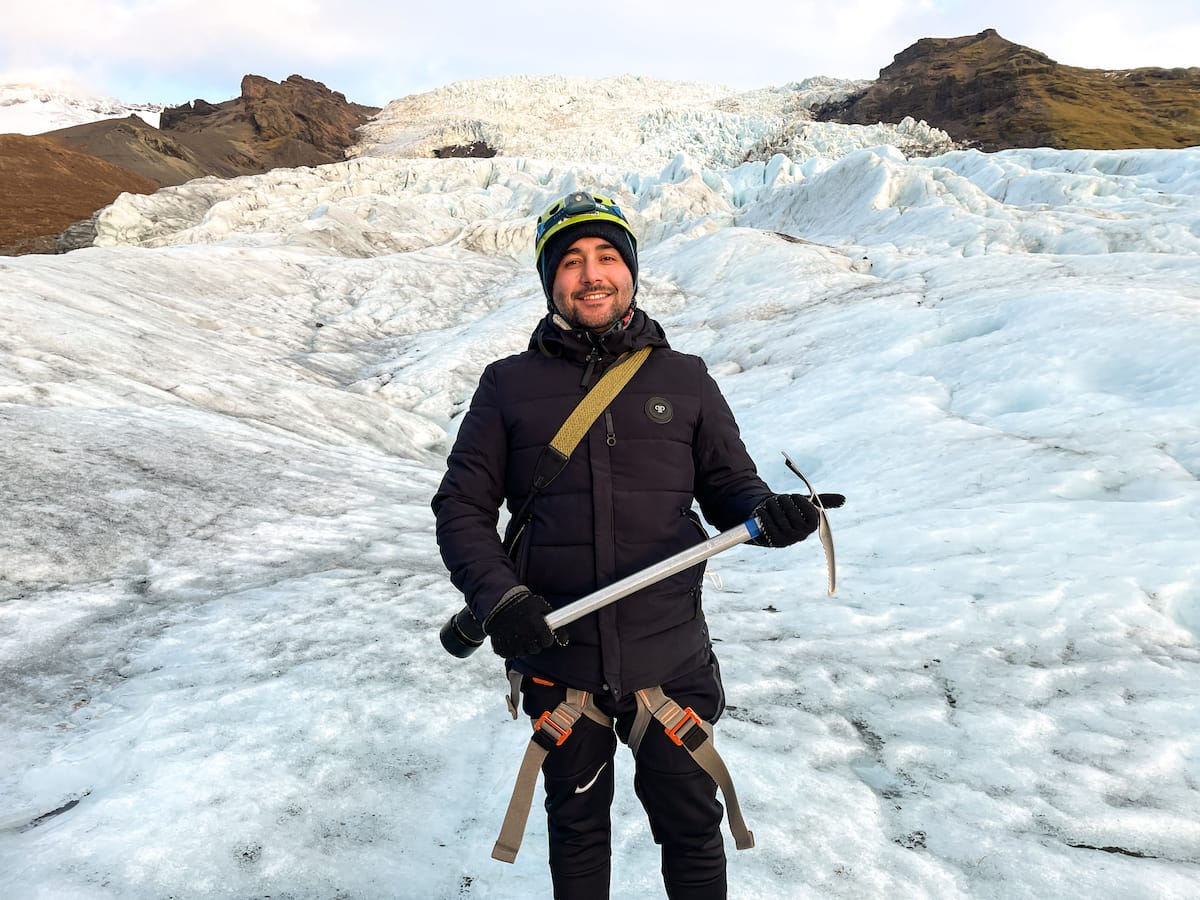
You will need to do this as part of a trip as it is not safe (or advised) to go alone, and it is one of the best experiences I have ever had in Iceland to date!
Troll Expeditions is one of my favorite adventure companies in Iceland, but this is a tour that you will need a rental car to get to, as the meeting point is outside of Reykjavik in South Iceland.
I think taking a glacier and ice cave tour in winter is essential to see the beauty of Iceland outside of Reykjavik.
>> Click here for glacier hike rates and availability with Troll Expeditions
6. Go Ice Skating and Shopping in Ingólfstorg Square
Shop and put on a pair of ice skates in Reykjavik’s old town at Ingólfstorg Square. The ice skating rink opened on November 24, 2023, and will be there until New Year’s Day in 2024.
There are a few small stands where you can buy trinkets (or a cup of hot cocoa), and 100,000 light bulbs illuminate this well-known square. I heard there was a Christmas market there, but to be honest, I didn’t see one.
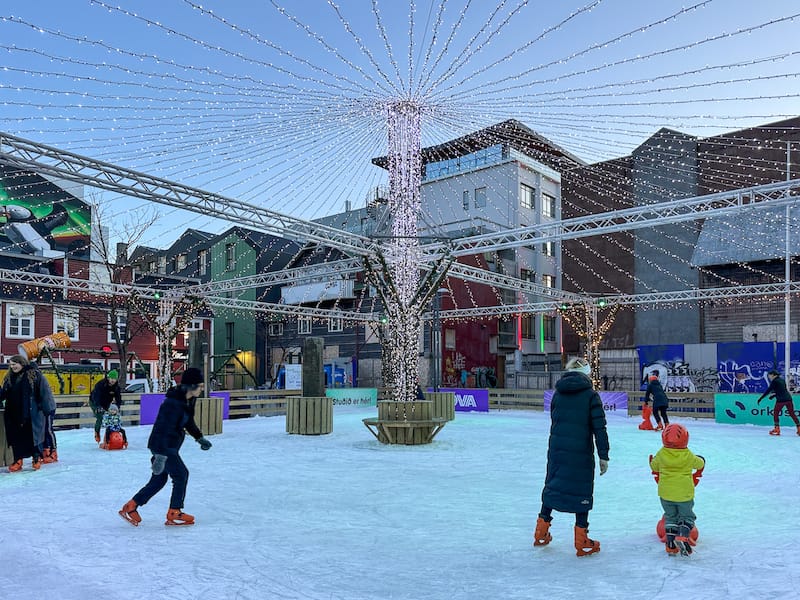
I looked up more information about that, and it turns out that the Kvosin Christmas Market only runs on weekends during December, hence why I missed it!
While it costs money to go ice skating (and you can book your slot online here), it is free to wander about and watch those having a bit of fun on the ice.
If you want to book a slot for ice skating at Ingolfstorg, you can do so via Visit Reykjavik’s site. Please note that I couldn’t find an English version of this on NOVA’s site, but you can translate Icelandic to English in your browser.
7. Check Out the Árbær Open Air Museum
Dive right into the cultural heritage of Reykjavik at the Árbær Open Air Museum.
It is one of six museum experiences included in the Reykjavik City Museums, all of which present the history and culture of the Icelandic people from the time of their settlement until the modern era, and is about a fifteen-minute drive from the center of the city.
To preserve the identity of the people and Old Reykjavik as they entered the modern era, the city came together to establish the museum.
Originally a farm, Árbær was also transformed into an open-air museum in 1957, with a village of 20 historical buildings relocated from the city’s center, forming a town square in addition to the farm.
This specific museum focuses on the architecture and lifestyles of the past in Reykjavik and has a variety of highlighted exhibitions and events held throughout the year, including showcasing traditional craftsmanship.
Address: 4, 110, Kistuhylur, Reykjavík
8. Taste Icelandic Cuisine on a Reykjavik Food Walk
Take a food tour around downtown Reykjavik while tasting the traditional flavors of Icelandic cuisine. Discover the lives of the locals in various shops and restaurants, and sample eight different dishes and delicacies for three hours.
Explore with the guide the locations of small, family-run restaurants and shops to famous, world-renowned ones; get the experience of a local by going to hidden gems and secret hangouts.
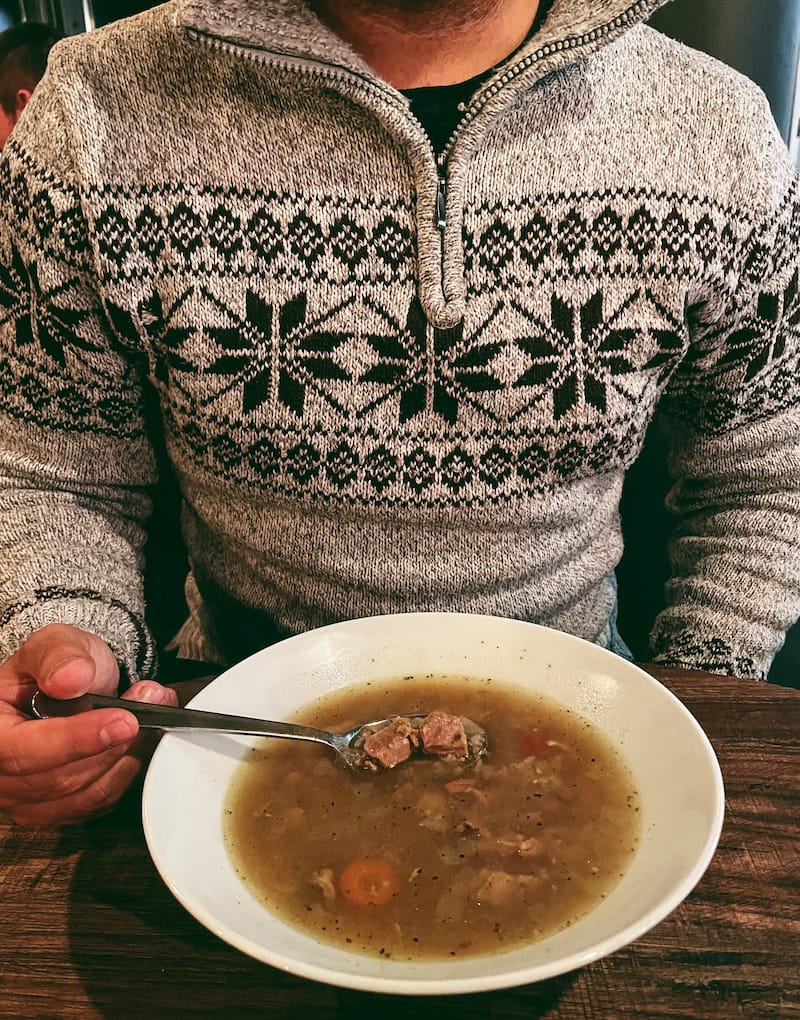
Enter a new world by trying a mixture of authentic flavors with Icelandic lamb soup, a variety of seasonal meats and cheeses, Iceland’s raved lobster soup, and of course, the country’s famous hot dogs.
You will get the background of each dish, along with the best times to visit each venue, and more! This is a great way to learn more about the cuisine of Iceland and it is a wonderful winter activity (especially when the weather is not playing nice).
>> Click here for food tour rates and availability
9. Head Out on a Whale Watching Excursion
Witness whales up close on a whale-watching excursion from the coast of Iceland! You will meet your tour guide at the Old Harbor and sail out to Kollafjöður; from there, you will be near Videy Island and Faxaflói Bay, which are both popular destinations for bird and whale watching.
Once in the bay, you can see a ring of mountains in the distance, including the Snaefellsjökull Glacier, another spectacular site to experience the best of Iceland.
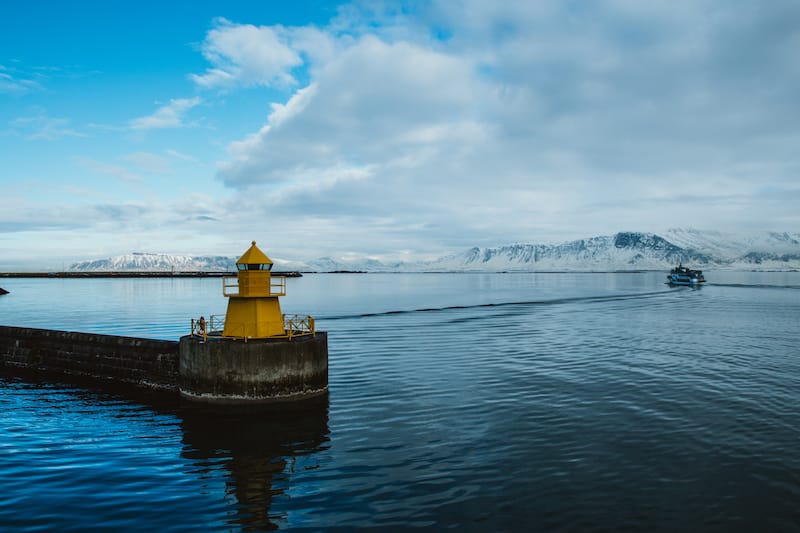
The duration of the tour will be three hours; therefore, it is crucial to be prepared for the cold breeze and potential waves splashing you as you sail the Atlantic Ocean. Guides will provide their passengers with warm overalls in addition to spacious indoor cabins with heating, WiFi, and a bar.
With the narration of the experienced tour guides, you will have a chance to see minke, killer, and humpback whales, as well as dolphins and harbor porpoises.
>> Click here for whale-watching rates and availability
10. Enjoy the Winter Lights Festival in February
Celebrate winter with the annual Winter Lights Festival and honor the growing sunlight of the closing period of darkness. From February 1-4, 2024, experience the light installation and art of the outdoors in Reykjavik’s city center.
The event is free of charge and is one of the most anticipated winter events in Reykjavik!
The thermal pools have stages with music performances and are illuminated; all the major museums incorporate dance and theater performances, lectures, live music, film, and readings; and the Reykjavik Ski Resort is open for winter activities.
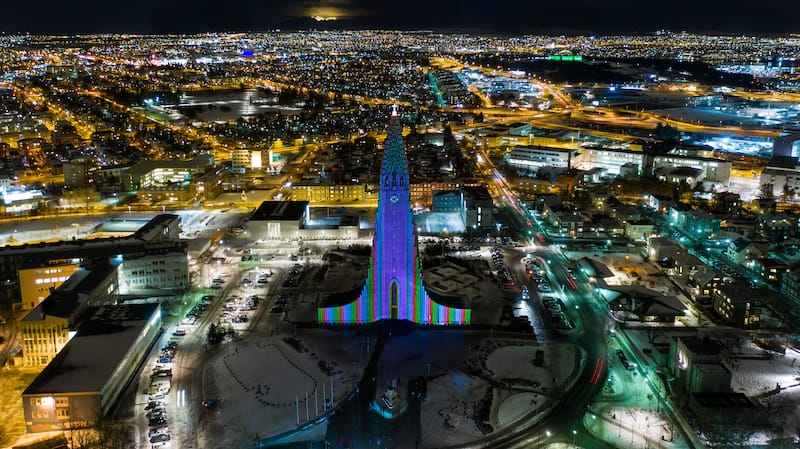
The six main light installations in the city center include the iconic Hallgrímskirkja, two different light shows at the Harpa Concert Hall, the Reykjavik Art Museum, the National Gallery of Iceland, and the Reykjavik City Hall and De-LuX– all of which have their own names.
The illuminating combination of art and entertainment lights up the city between 6:30pm and 10pm every night of the festival.
11. Explore the National Museum of Iceland
Witness 1,200 years of history at the National Museum of Iceland. The structure of the exhibitions provides a clear chronology from the colonization of the island to the present day.
Evenly divided into seven periods, the narration of the museum highlights details that are often overlooked.
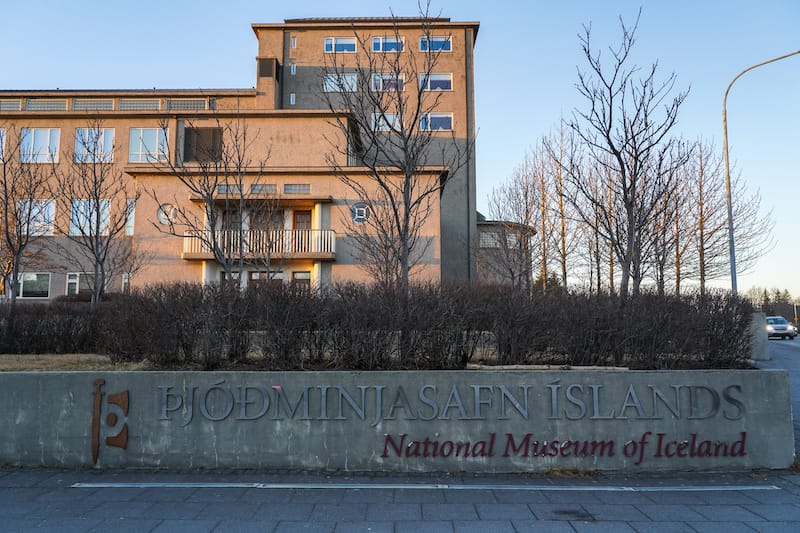
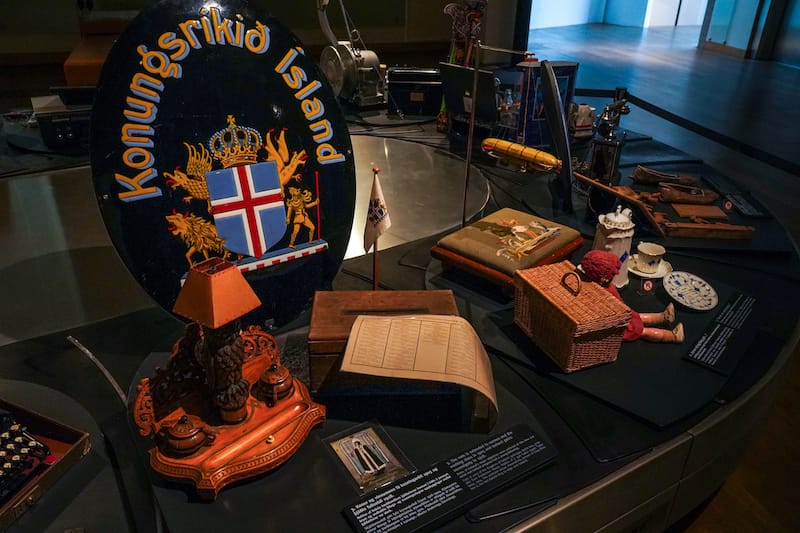
See preserved artifacts from the first centuries of the island’s settlement from 1,100 years ago. Witness the transition from the pagan Norse tradition to Christianity, which includes the adoption of medieval Christian culture.
A shift in sovereignty is also showcased from when the King of Norway expanded his kingdom to Iceland, followed by the takeover from the Danish Empire, and thus artifacts of war, including spears, shields, and swords, are on display.
The museum even presents the transition from the urbanization of settlements to the present day. Stop by the museum shop for souvenirs or at the cafe for refreshing food and drinks!
The National Museum of Iceland is open daily from 10am until 5pm.
Address: Suðurgata 41, 102 Reykjavík
12. Go on a Golden Circle Day Tour
Experience an incredible day in Iceland’s scenic landscape. From lakes to waterfalls, and geysers, take an eight-hour Golden Circle tour by bus from Reykjavik.
Depart from the city center until Hveragerdi, where you can take a break and stretch your legs. Then, resume your road trip on the southern coast’s portion of the Ring Road toward Kerid Crater, a 3,000-year-old lake made from a volcanic crater.
Afterward, you will proceed in the direction of the iconic Gullfoss waterfall, with water originating from the Langjökull glacier that feeds the Hvítá River, producing a roaring cascade– spraying and drenching anyone that gets close.
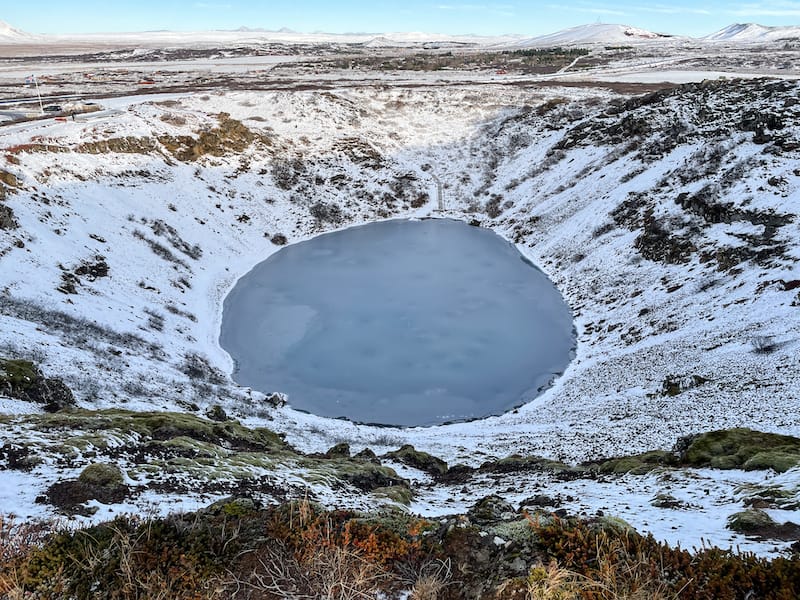
Continue the voyage to the Geysir area, where you can catch sites of the spouting geyser of Strokkur up close, and take a serene lunch break immersed in nature.
Finally, the bus will continue to Þingvellir National Park (Thingvellir National Park), where the North American and Eurasian tectonic plates meet and formulate the rocky cliffs, fissures, and dramatic, rift valleys.
>> Click here for Golden Circle day trip rates and availability
13. Marvel at Beautiful Hallgrimskirkja
The emblem of Reykjavik would without a doubt be the Hallgrimskirkja, a 73-meter high (240-foot) cathedral designed in modern fashion, but dependent on traditional Icelandic motifs.
It is a Lutheran Church that is one of the tallest buildings in Reykjavik and it sits at the center of the city on Skólavörðuholt Hill.
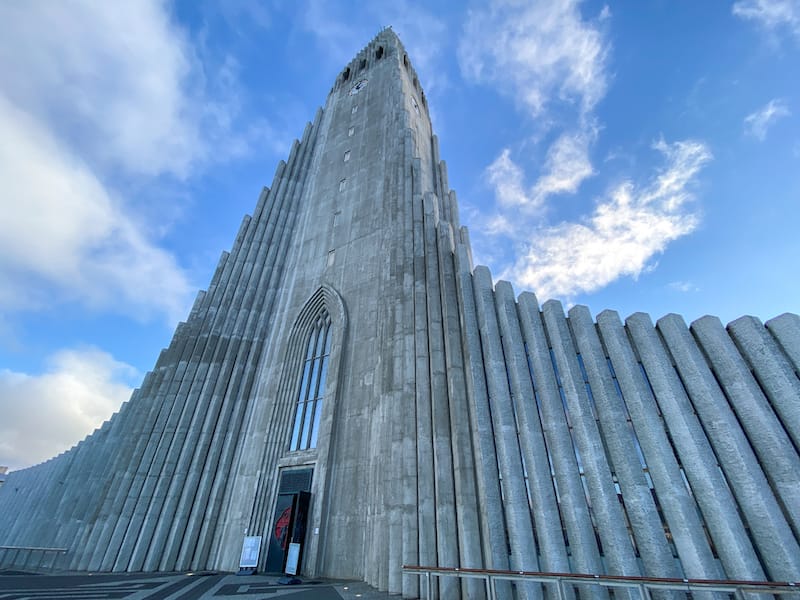
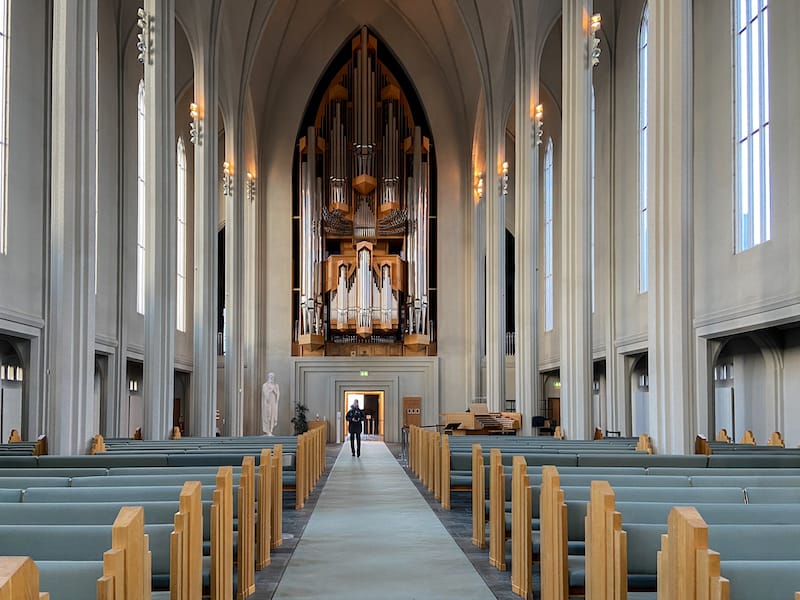
Take a tour of the church any day from 10 AM to 8 PM, and the tower closes half an hour before the general closing time.
This church is often the centerpiece for many festivals, including the Winter Lights Festival held in February, and is illuminated with a light show, which in turn illuminates the entire city.
Address: Hallgrímstorg 1, 101 Reykjavík
14. Go to a Community Bonfire on New Year’s Eve
Iceland takes advantage of its deep, dark, winter nights with early fireworks in anticipation of the upcoming New Year. The fireworks start as early as 8 PM, and last until half an hour to an hour before the actual transition into the New Year.
This is primarily because the whole country is too busy laughing at the world with the Icelandic TV comic show Áramótaskaupið, which when it closes, is the cue for the real firework show to begin.
Many locals in Reykjavik either watch the fireworks near the Hallgrimskirkja Cathedral or shoot their own from Klambratún Park or Landakotstún Park.
You can get cozy around the many bonfires that are organized throughout the city; the bonfires themselves are a tradition from the Middle Ages in which people used to burn the old things they no longer needed. Although the tradition is well preserved, many Icelanders simply gather around the bonfires to sing together.
Looking for additional things to do during winter in Reykjavik?
There are plenty of things to do in Reykjavik in winter so this is no complete guide (and the ones above are merely a few of my favorite suggestions).

However, here is a quick list of alternatives if you have extra days and are considering sticking around the city a little longer!
- FlyOver Iceland: a motion experience that takes you over the country in a very interactive way; it is one of the main attractions in Reykjavik.
- Jokulsarlon Glacier Lagoon: this is a great day trip option and a perfect addition to your itinerary if you’re visiting the south coast
- Horseback riding: the country is known for its Icelandic horses and there are plenty of day tours you can take to ride one outside the city.
- Perlan: this is an interactive nature museum in Reykjavik that offers panoramic views, a man-made ice cave, a volcano documentary, and a northern lights experience. (It is also a nice place to see the aurora from its observation deck if you have clear skies!)
- Enjoy a heated swimming pool in Reykjavik: Iceland has so many secret lagoons, hot springs, and natural swimming pools. In Reykjavik, you can enjoy one of the city’s heated pools (you can find a list of them here).
Where to Stay in Reykjavik
I have stayed in several places around Reykjavik over the years (and not all I’d recommend, sadly)! Here are some of my top picks!
The Reykjavik EDITION (Luxury)
The Reykjavik EDITION is a newcomer to the capital’s accommodation scene and is a 5-star hotel right close to the water. You’ll be just a short walk from Laugavegur Street (shopping!), Harpa, and other top things and places in Reykjavik. It is also home to TIDES, one of the best restaurants in Reykjavik.
>> Click here to check EDITION’s rates and availability
Hotel VON (Mid-range)
This mid-range boutique hotel is located on Laugavegur Street and has 52 rooms on the property. I received a free upgrade to a Deluxe room when at Hotel VON and I had a balcony that gave me views to the north where I could see the northern lights.
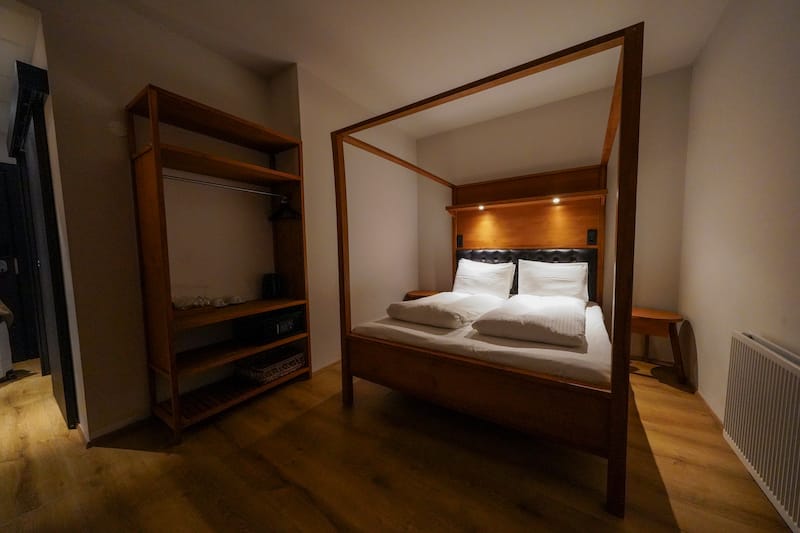
It is also home to BON Restaurant which has a nice wine selection.
>> Click here to check Hotel VON’s rates and availability
Skuggi Hotel by Keahotels (Mid-range)
I also have to include Skuggi Hotel on this guide as I stayed there during the winter time as well! This 3-star hotel is conveniently located and is only a short walk from the main sights of Reykjavik.
It is also close to Bus Stop #9 where several tours pick up from.
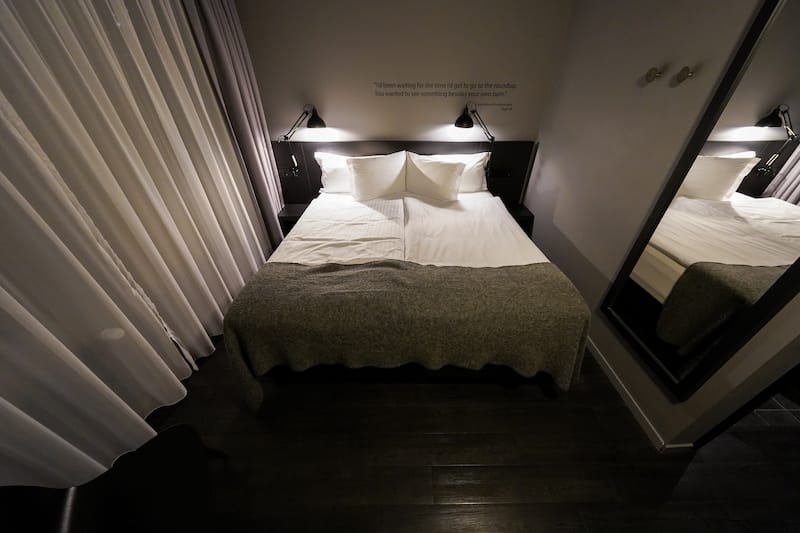
The breakfast was my favorite in Reykjavik and was included in my hotel price. There are fewer people in winter than in the summer months, so rates tend to be cheaper.
>> Click here to check Skuggi Hotel’s rates and availability
Kex Hostel (Budget)
The famous Kex Hostel is a good option for those traveling to Reykjavik on a budget. The trendy hostel is in a repurposed biscuit factory in the city and is located just a stone’s throw away from the action!
>> Click here to check Kex Hostel’s rates and availability
Did I miss any of the best things to do in Reykjavik in winter? Or the best places close to Reykjavik? Let me know in the comments!
More Iceland Travel Guides
- Best waterfalls in Iceland
- Where to travel in Iceland
- Charming villages in Iceland
- Gorgeous Iceland beaches
- ATV tour in Iceland
- Lava Show in Reykjavik review
- Katla ice caves tour
- Silfra snorkeling review
- Iceland in April
- Glacier hiking at Skaftafell tour
- Westfjords itinerary
- Jokulsarlon Glacier Lagoon
Pin this Winter in Reykjavik Guide
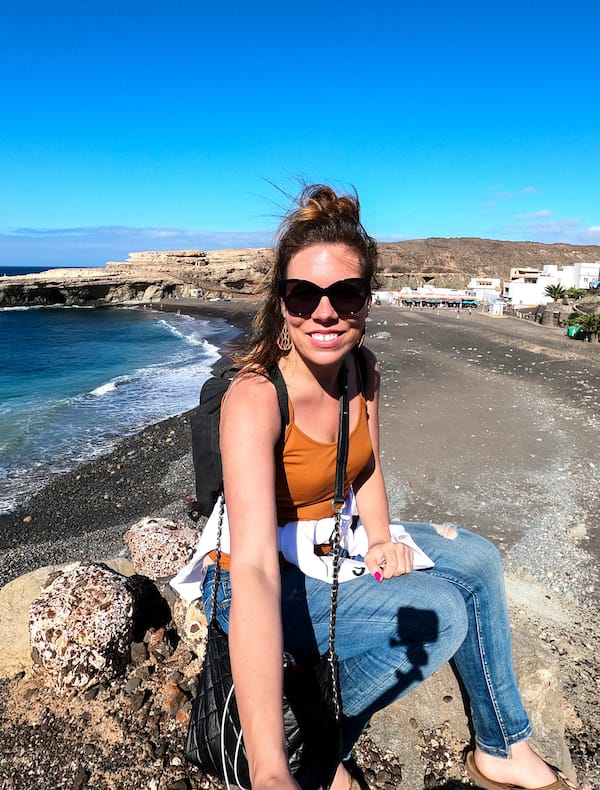
Megan is a travel blogger and writer with a background in digital marketing. Originally from Richmond, VA, she now splits her time between Frankfurt, Germany and Arctic Finland after also living in Norway, Armenia, and Kazakhstan. She has a passion for winter travel, as well as the Nordic countries, but you can also find her eating her way through Italy, perusing perfume stores in Paris, or taking road trips through the USA. Megan has written for or been featured by National Geographic, Forbes, Lonely Planet, the New York Times, and more. She co-authored Fodor’s Travel ‘Essential Norway’ and has visited 45 US states and 100+ countries.

